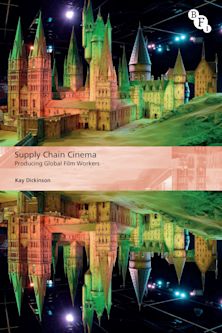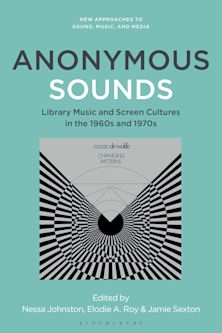- Home
- ACADEMIC
- Film & Media
- Film and Media Production
- Transmedia Television
Transmedia Television
New Trends in Network Serial Production
Transmedia Television
New Trends in Network Serial Production
You must sign in to add this item to your wishlist. Please sign in or create an account
Description
Faced with what many were calling a dying medium, US network television producers became much more aggressive in seeking out alternative business and artistic models in the beginning of this century. Most significantly, many of these producers turned to the emerging field of transmedia (ancillary texts in comicbooks, novels and new media) as a way to bolster and support television products. In this book, the author examines four such programs (24, Alias, Heroes and Lost) and investigates how transmedia was incorporated into both the work and the art of network television production.
Split into two complementary parts, the book first paints a picture of how transmedia producers were, or were not, incorporated into creative decision-making centers of these serialized programs. The second section explains how the presence of off-site transmedia texts begins to alter the very narrative construction of the on-air series themselves. Including interviews with the transmedia workers, this groundbreaking study extends the field of television studies into brand new areas, and brings a 'dying medium' into the 21st Century.
Table of Contents
Chapter One: Network Television: The Comicbook
Chapter Two: Network Television: The Novel
Chapter Three: Network Television: The VideoGame
Chapter Four: Network Television: The Mobisode
Chapter Five: Lost and Mastermind Narration
Chapter Six: 24 and Tentpole Spatiality
Chapter Seven: Alias and Reflective Uncertainty
Conclusion
Product details

| Published | Dec 20 2012 |
|---|---|
| Format | Ebook (PDF) |
| Edition | 1st |
| Extent | 224 |
| ISBN | 9781441144133 |
| Imprint | Bloomsbury Academic |
| Illustrations | 3 illus |
| Publisher | Bloomsbury Publishing |
About the contributors
Reviews
-
Transmedia Television: New Trends in Network Serial Production offers a fascinating insight in the industrial conditions that have shaped the emergence of transmedia television content in the U.S. Clarke integrates production analysis with insightful analysis of key programme case studies and demonstrates the importance of exploring how the industry is making television far more than just TV.
Elizabeth Evans, University of Nottingham, author of Transmedia Television: Audiences, New Media and Daily Life
-
Through a series of compelling case studies, Clarke examines the use of the tentpole strategy as both a form of industrial practice and as a creative necessity in today's broadcast television environment. By investigating this important development in the production, marketing, and reception of recent television programs, Transmedia Television makes a vital contribution to the field of television studies.
Kimberly Owczarski, Assistant Professor, Film-Television-Digital Media, Texas Christian University
-
With detailed attention to how media workers navigate changes in the television industry, Clarke accounts not just for shifting markets and organizational structures, but also social bonds, rituals, and meaningful cultural forms. Engaged in careful, media-specific, stylistic analysis of television streamed across new platforms and creative frontiers, his book offers a thoughtful and unique approach to understanding media production cultures.
Derek Johnson, Assistant Professor of Media and Cultural Studies, University of Wisconsin-Madison; author of Media Franchising: Creative License and Collaboration in the Culture Industries
-
In Transmedia Television, Clarke offers a rigorous analysis of the cultural industries of 'tentpole TV,' presenting a compelling examination of how the television industry adapts to a new media ecology.
Zach Whalen, Assistant Professor of English, University of Mary Washington, VA

ONLINE RESOURCES
Bloomsbury Collections
This book is available on Bloomsbury Collections where your library has access.


































